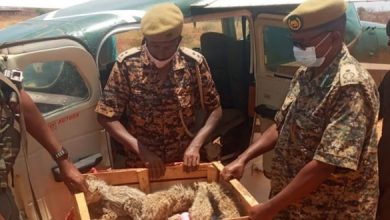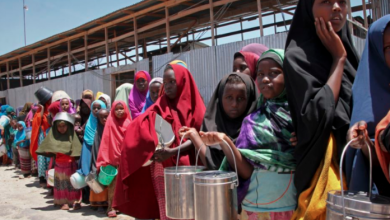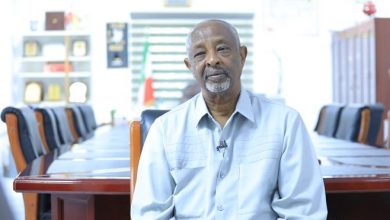ICJ to review Kenya’s request for case delay next week
The International Court of Justice will next week once again review Kenya’s request for a 12-month delay of public hearing in a maritime boundary case filed by Somalia.
The International Court of Justice will next week once again review Kenya’s request for a 12-month delay of public hearing in a maritime boundary case filed by Somalia.
On Thursday, Kenya’s Office of the Attorney-General asked the Court, based at The Hague, Netherlands, to grant a year’s postponement in what officials argue would be sufficient time to prepare.
The move came after the ICJ had initially granted a two-month delay for the public hearings earlier scheduled for September 9 but moved to November 4 this year.
SOLUTION
Foreign Affairs PS Macharia Kamau told the Nation the time granted by the Court would not be enough for Nairobi to prepare.
“It is the same request for the 12-month postponement that was being revisited at the invitation of the acting president of the case because we only got 55 days last time which is simply unworkable for Kenya,” he said from The Hague where he accompanied Solicitor-General Ken Ogeto and other state counsel. The decision on the new request should come ‘very soon’, he said.
Somalia has opposed Kenya’s request from the start, and Wednesday’s meeting which was some sort of a conference of parties to the case was supposed to broker an amicable solution.
In September, Kenya had asked the ICJ to delay the case, arguing it needed time to recruit a new legal team. “Due to exceptional circumstances, occasioned by the need to recruit a new defence team, Kenya has sought to have the matter postponed,” AG Kihara Kariuki’s office said then.
DIAGONAL
“The Rules of the Court allows for postponement of the hearing of the case to afford the parties an opportunity to be represented.”
Somalia sued Kenya at the ICJ, the UN’s principle Court, seeking to change the flow of the maritime boundary from the current eastwards direction from the land border at Kiunga, to a diagonal flow, threating Kenya’s sea stake.
Prof Payam Akhavan from the US, Prof Vaughan Lowe QC from the UK, Prof Alan Boyle (British), Prof Mathias Forteau (French), Mr Karim Khan (British) and Ms Amy Sanders (British) had been Kenya’s counsel in the initial stages of the case.
Somalia’s Deputy Prime Minister Mahdi Gulaid argued the two-month extension should have been sufficient for Kenya to be ready.
JURISDICTION
Under Article 54 of the Rules of the Court, parties to a case may request the bench to alter the date fixed by the Court, “should occasion arise” to either delay the public oral sessions or stop those already going on until a later date.
The issue at hand though is the continual refusal by Somalia to accept an alternative means to resolve the case, out of Court. Though the ICJ ruled it had jurisdiction over the matter when it admitted the case; the tradition is that the Court may be forced to discontinue the case should the parties agree to withdraw it.
At the UN General Assembly in New York, President Mohamed Farmaajo rejected his Kenyan counterpart’s (President Uhuru Kenyatta) overtures to use negotiations rather than the court.
MEDIATOR
Farmaajo claimed negotiations between the sides had “completely collapsed” and said only the court could resolve. Though Kenyan diplomats wouldn’t formally confirm it, the Kenyan desire is that thawing of relations between Nairobi and Mogadishu will enable frequent contacts, and a change of heart.
Nairobi is also still banking on the African Union Chairperson to appoint a mediator, as directed by the African Union Peace and Security Council to help broker a solution.





